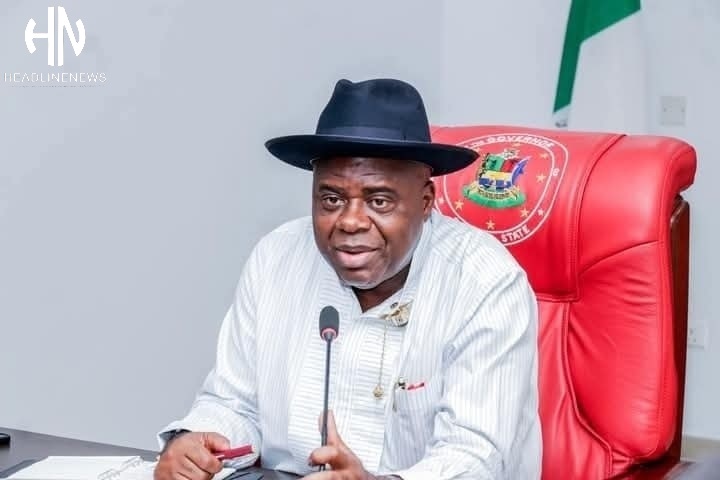Bayelsa State has proposed the creation of 25 additional local government areas, bringing the total to 33, as part of its comprehensive proposals during the ongoing constitutional review process.
The state also recommended the establishment of a state police force, the adoption of fiscal federalism, and comprehensive reforms in the electoral and judicial systems.
These proposals were presented on Saturday by the Attorney General and Commissioner for Justice, Mr. Biriyai Dambo (SAN), during a public hearing held at the DSP Alamieyeseigha Banquet Hall in Yenagoa. The event was organised by the South South Centre A (comprising Bayelsa, Delta, and Edo States) of the House of Representatives’ Committee on the Review of the 1999 Constitution.

Why More LGAs Are Needed
Mr. Dambo explained that the current eight local government areas in Bayelsa are inadequate to effectively administer the growing population, noting that some LGAs have over 150 communities under their jurisdiction. He emphasized that the state has both the financial capacity and administrative readiness to manage the proposed 25 additional councils.
He cited the state House of Assembly’s backing of the creation of the councils in accordance with Section 8(3) of the 1999 Constitution (as amended).
Push for Fiscal Federalism and Resource Control
Bayelsa also advocated for a restructuring of Nigeria’s fiscal framework, calling for full control of both onshore and offshore natural resources by the federating units. Under its proposal, states would retain 60 percent of revenues generated from their resources, remitting 40 percent to the federal government.
This, the state argued, is essential for economic justice and the sustainable development of resource-rich regions like the Niger Delta.

Support for State Police and True Federalism
Bayelsa strongly supported the establishment of state police, stressing that decentralizing security would enhance the capacity of states to address local crimes and improve public safety. The move, it said, aligns with the principles of true federalism and the current security realities in Nigeria.
Comprehensive Institutional Reforms Proposed
The state’s broader proposals included:
-
Review of the exclusive and concurrent legislative lists to devolve more powers to states.
-
Electoral reforms to enhance the independence and efficiency of the Independent National Electoral Commission (INEC).
-
Judicial reforms to strengthen the administration of justice.
-
Local government autonomy and systemic review to ensure grassroots governance is more effective and accountable.

Governor Diri: Constitution Must Reflect Justice and Equity
In his remarks, Bayelsa State Governor, Senator Douye Diri, described the Constitution as a “living document” that should evolve in response to the aspirations of citizens. He said the current review was a vital opportunity to correct long-standing structural imbalances.
“Our position is rooted in a deep desire to establish a federal system that is genuinely just, equitable, and responsive—not just to Bayelsa or the Niger Delta, but to the entire Nigerian federation,” Diri said.
He lamented historical injustices in the distribution of local government areas and the inequitable allocation of national resources, calling for urgent redress through constitutional reform.
Regional Support for the Review Process
Delta State Governor Sheriff Oborevwori, represented by Deputy Governor Sir Monday Onyeme, and Edo State Governor Godwin Obaseki, represented by Attorney General Samson Osagie, also voiced support for the review. They described the 1999 Constitution as outdated and filled with ambiguities that need correction to meet present-day realities.

House Leadership Commits to Inclusive Review
Chairman of the South South Centre A Committee and House Majority Leader, Prof. Julius Ihonvbere, assured that all submissions from stakeholders would be carefully reviewed by the full Constitution Review Committee before presentation to the House of Representatives.
He emphasized that the process was aimed at making Nigeria’s democracy more participatory, inclusive, and reflective of the will of the people.
Dignitaries in Attendance
The event drew a wide range of stakeholders, including:
-
Bayelsa State Deputy Governor, Senator Lawrence Ewhrudjakpo;
-
The governor’s wife, Dr. Gloria Diri;
-
Members of the House of Representatives: Dr. Fred Agbedi, Mrs. Marie Ebikake, Dr. Mitema Obordor, and Rodney Ambaiowei;
-
Speaker of Bayelsa State House of Assembly, Rt. Hon. Abraham Ingobere;
-
Delta State Speaker, Emomotimi Guwor;
-
Traditional rulers, including the Amanyanabo of Twon-Brass, King Alfred Diete-Spiff, and King Bubaraye Dakolo, chairman of the Bayelsa State Council of Traditional Rulers;
-
Other dignitaries from Bayelsa, Delta, and Edo States.




